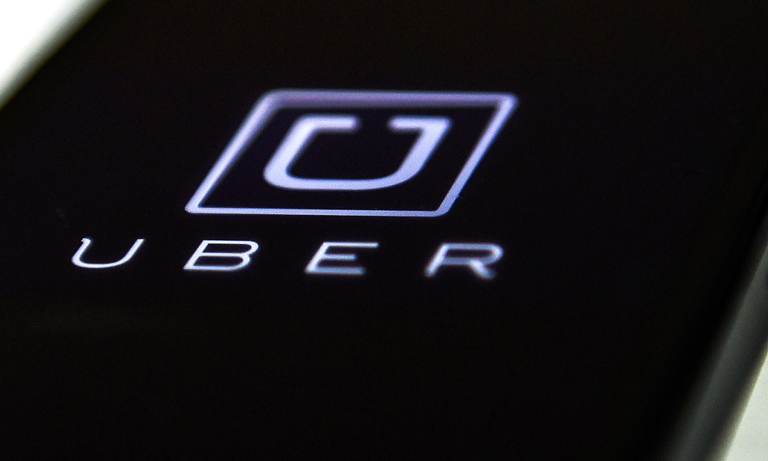 Uber has lost an appeal against a 2016 employment tribunal ruling
Uber has lost an appeal against a 2016 employment tribunal rulingA London Employment appeals tribunal has been told that San Franciso-based company Uber has not introduced new employment practices with its ride-hailing app, and that it is similar in operation to a traditional mini-cab firm.
The company is appealing against a ruling that it must treat its drivers as workers and not as having self-employed status as at present. The ruling is the result of a claim brought by Uber drivers, Yaseen Aslam and James Farrar.
If drivers were treated as workers, they would enjoy the national minimum wage, rest breaks and paid annual leave.
The first day of the hearing was chosen as an opportune moment for a protest march by the Independent Workers Union of Great Britain, representing so-called “precarious” workers in the gig economy, with Uber drivers and Deliveroo riders among those marching with other casual, zero-hours and outsourced workers.
So is Uber a new employment model or simply an upscaled version of a decades-old model?
The well-reported complaints, aimed at Uber in particular, and at other companies operating in the gig economy, include that drivers are struggling to make the minimum wage and that the company shoulders no responsibility or liability for them, while the increase in the numbers of drivers forces fares to become lower and lower to attract more customers.
Uber QC, Dinah Rose, compared services available through Uber with those that have been offered by minicab firms for many years, with the minicab firm acting as an agent for the driver. The vast majority of minicab and private-hire drivers have traditionally been self-employed.
He says that the difference is simply in the scale of the operation, with tens of thousands of drivers using the app, something only made possible by technological advances.
Uber argues that its drivers enjoy total freedom and flexibility to choose the work they accept, with working hours convenient to them, and with the added attraction of being their own boss.
Lawyers acting for Farrar and Aslam at the tribunal argued that Uber does not act as an agent for its drivers and that the documentation does not exist that shows that an agreement has been made to authorise the company to do so, other than for the limited scope of collecting payment.
They also allege that Uber withholds information on passenger destinations from drivers before pick-up, so that there is no opportunity for them to decline bookings to places that they do not wish to travel in advance. This leaves only one option for the driver – to cancel the trip and attract customer complaints and a lower rating score.
In a separate employment tribunal brought by a female driver in London, it has been alleged that Uber’s operating practices are unfair to women, as it is not possible to know whether jobs will require a driver to go to what they consider to be a risky or remote location until the passenger is in the car.
It is not expected that the arguments brought by the appeal tribunal will be affected by recent news that Transport for London has decided not to renew Uber’s operating licence.
Recruiters love this COMPLETE set of Accredited Recruitment & HR Training – View Training Brochure








